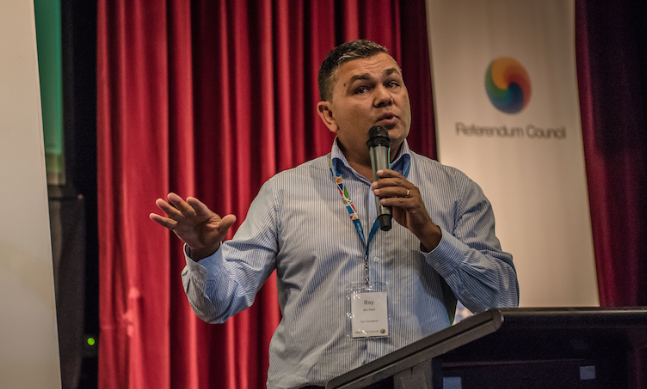A Voice to Parliament was identified as a strong priority by delegates from across NSW who attended the First Nations Regional Dialogue in Sydney on 10-12 March 2017.
Delegates engaged in heartfelt debate about the plight of First Nations in Australia. However, a little girl’s spontaneous song stole the show, inspiring a sense of unity and optimism for change.
Around 100 delegates from Sydney, the far north coast, mid north coast, central coast, Newcastle, south coast and far south coast attended the Dialogue, the sixth in a series of 12 that are being held across the nation.

The group agreed that a symbolic statement of acknowledgement in the Australian Constitution is not enough and that substantive reform is needed. Delegates also discussed the need for agreement making and stronger protections of Aboriginal rights.
One of the Co-convenors of the Dialogue, Roy Ah-See, said the meeting was challenging, but resulted in a shared sense of unity and optimism. “We've been having this conversation about basic human rights, truth and social justice for decades. There were differing opinions on what recognition means for delegates, their families and communities, but we got through it and came to a consensus. People in the room felt it was important we stand united, not divided, and that this process delivers a voice for First Nations people across NSW and the country.”
The need for a First Nations Voice to Parliament was emphasised, as it has been in other Dialogues.
“A Voice to Parliament, that gives First Nations people a true say in laws that affect them, continues to be viewed as important by Dialogue participants,” Referendum Council Co-Chair, Pat Anderson said.
Mr Ah-See said the group called for a representative body to be established and enshrined in the Constitution, to enable First Nations people to have influence over policy and keep parliamentarians accountable.
Delegates also explored the idea of designated seats in Parliament and expressed a high level of support for agreement-making. Mr Ah-See said representatives felt that agreement-making, or treaty-making, was critical to establishing formal relationships with state and federal governments, because having an agreement helps them begin the conversation on equal terms.
On completion of the Regional Dialogues, 10 delegates from each region across Australia will meet at a national convention at Uluru in May to come to a consensus position which will be put to the Prime Minister and Leader of the Opposition.
Representatives at the Sydney Regional Dialogue emphasised that the process after Uluru would be important, and that First Nations people needed to continue to be involved in negotiating with government on any proposal that goes forward.